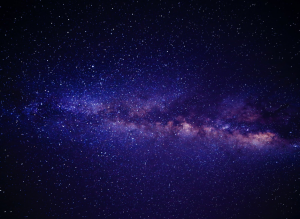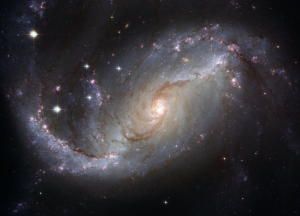We encourage the submission of original articles. This fascinating survey of the benefits of the telescope comes from Richard Browny. In economics, we observe visible behavior and deduce motivation, attitude and feelings, which are invisible. In science, the telescope enables simple observation of the behavior of celestial bodies, and further understanding ensues.
The telescope has changed the way we understand the observable universe. Find out the biggest discoveries we’ve made on modern telescopes and what we hope to uncover with them in the future. You might even want to get a telescope of your own.
What are the benefits of using a telescope? Learn all about man’s awesome discoveries and newfound mysteries.
Since the telescope was first patented in 1611, the discoveries that have been made on it have changed the way we view the known universe. It’s hardly a humble device. Because our limited human eyes can only see so much, the telescope has helped us look into the beyond.
For more everyday practical purposes, we use it for tracking and aiming – like with Konus scopes. But with an astronomical telescope, which has gotten more sophisticated, we can peer into the cosmos. The scope of what we can observe is enough to overwhelm any home astronomer.
So how did this game-changing invention form the way we think about the observable universe? What discoveries has mankind made so far? How has the telescoped changed since Galileo used it to confirm Copernicus’ Heliocentric model?
In this article, we’ll cover some awe-inspiring human feats and how the telescope helped us achieve them. If you’re looking for the best home telescope, find helpful reviews on OPT telescopes and other brands at Best Tech Expert.
Learning About the Existence of Other Galaxies
Using a sophisticated optical telescope that can emit radio waves, we are now closer to answering the age-old question: are we the only beings in the universe? We’re now able to take pictures of deep space. It has been revealed that there are thousands of galaxies, much like our own.
The odds are that we’re not the only life forms in existence, judging by the sheer amount galaxies we’ve discovered. The mind-boggling thing is: out of everything we’ve seen; this amounts to only 4% of our estimated size of the universe. Crazy, isn’t it?
Studying Our Celestial Neighbors
There are many things about Earth that we didn’t use to understand. What helped us figure our geological processes is studying the other planets in our system. Observing natural phenomena on other planets helps us predict what might happen on our terrain.
To some, the concept might seem a little farfetched. What does studying a whole other planet have to do with the behavior of Earth? Perhaps the best example to illustrate this is our battle with greenhouse emissions. You’ve probably heard to keep these to a minimum. Why? Because we’re able to study greenhouse effects on Venus and Mercury. We see that they’re unlivable and we should keep Earth from following suit.
Finding out the Universe’s Estimated Age
When it was first launched, the Hubble Space Telescope had two main goals. First, to give us an idea of how expansive the universe is. Second, to help us figure out how old it is. Since this telescope has been in orbit for over 20 years, it has helped us get closer to answering these two questions.
The Hubble helped scientists measure the brightness of Cepheid variable stars. These specific gas giants pulse in a set cycle, making them the perfect checkpoints for measuring vast distances. Naturally, the dimmer it looks to be, the farther away it is.
You can use this same principle with a digital telescope that you can set up at home. As you look through it, you’re going to notice that some stars shine brighter than others. You might be able to see their surfaces because they’re much closer to Earth. To illustrate this concept, just think about our own star, the sun.
By giving us an approximation of how vast the universe is, we’re able to correct and enhance our models of the universe. This allows us to make further theories about when the universe was formed and how it happened.
Revealing Dark Matter and Black Holes
Black Holes used to be inexplicable. But now, scientists are able to observe the elements around them with the use of telescopes and satellites. This is about as close as we can get to studying them because nothing has gotten back from a black hole. Ever.
It’s impossible to look at a black hole with just your eyes. In fact, it was only in early 2019 when we captured the very first photo of a black hole using the Event Horizon Telescope. It was spotted somewhere in the middle of Galaxy m87.
Black holes are still a mystery, but at least we know the concept behind them. Black holes are spots in space where the gravity is so strong that light can’t escape it. Because there is no light, there is no way that they can be seen.
Scientists discovered that black holes had been around since the universe first began. It’s a creepy idea, but you shouldn’t worry about our sun turning into one. Even if it collapses on itself, it’s not nearly as substantial enough to form a black hole. Our solar system is safe.
Turning Hobbyists into Experts
If you’re fascinated by space, you can observe it in your own backyard. There are many telescopes on the market right now that can give you a more than decent scope. If you don’t know where to start, a Bushnell telescope is something worth checking out.
If you want to customize your own telescope, why not make one with some high-quality Meade telescope parts? With a good home setup, you can watch deep-sky objects and see as far as Jupiter.
Conclusion
Do you have any interesting findings with your own telescope? Share them with us so we can geek out with you. For now, use this online telescope and ponder the mysteries of the universe.
Author’s bio: Richard Browny has been a space nerd all his life. He went to Space Camp three times before he was 18. He’s now an Applied Physicist but also enjoys writing. He writes thoughtful reviews about science gadgets, which have been published in many magazines. In his spare time, he makes scores for short films.







